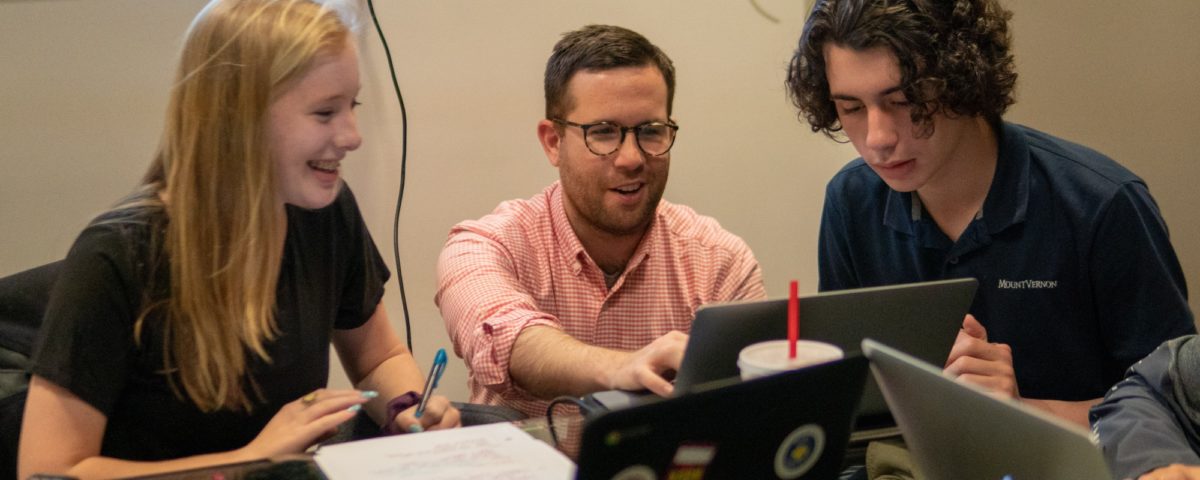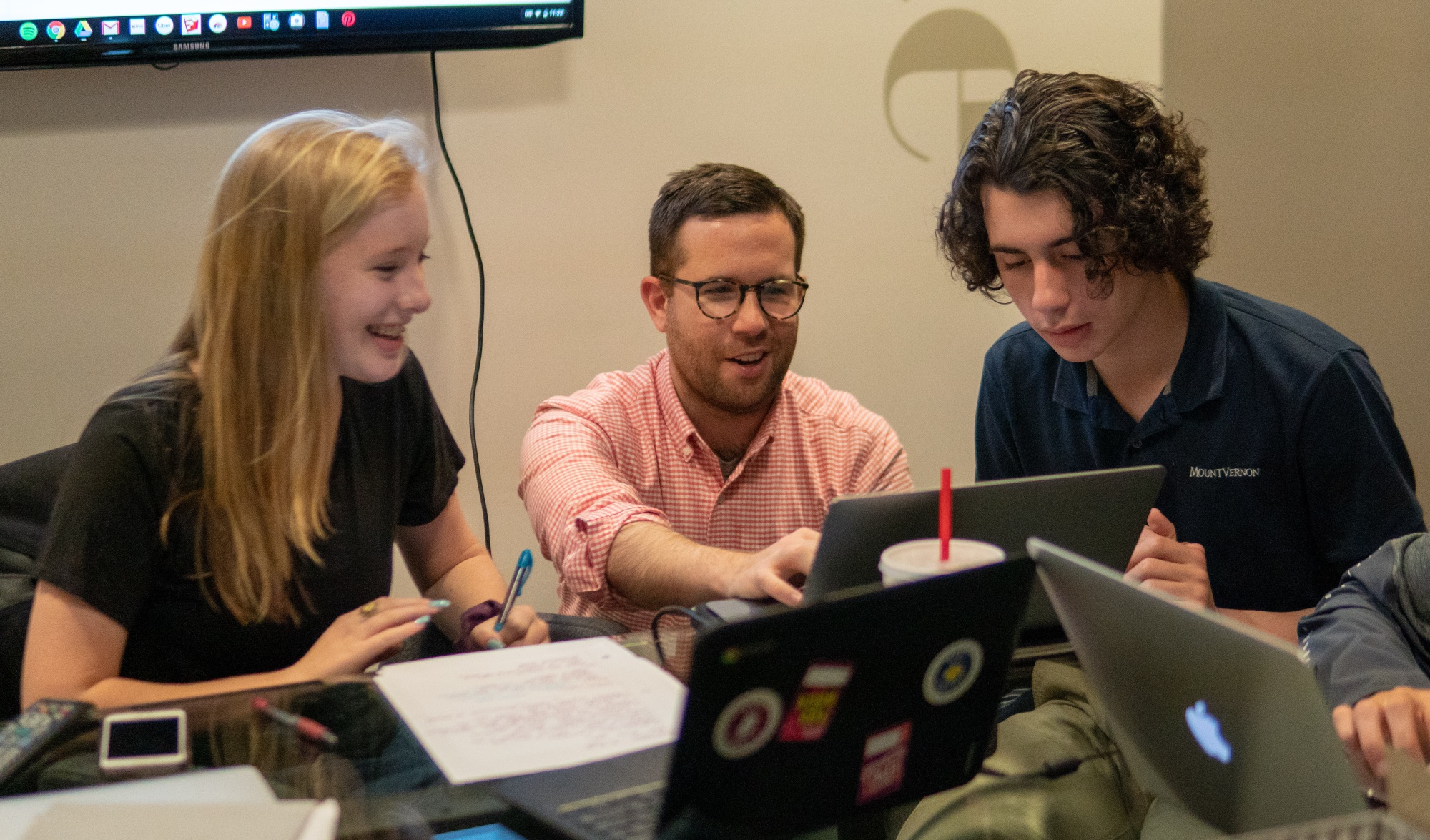Already a member? Log in to the Member Site at members.mastery.org.

The MTC Network: Meet Valerie Greenhill
April 4, 2019
Member Voices: The Ground Game
May 10, 2019School-within-a-School: Fail, Grow, Succeed


MTC Member school Mount Vernon is planning a pilot of the Mastery Transcript; for their community, a school-within-a-school model is ideal for testing innovative approaches
Buckminster Fuller said, “You never change things by fighting the existing reality. To change something, build a new model that makes the existing model obsolete.”
In 2014, Mount Vernon Presbyterian School, an MTC member school, and the Mount Vernon Institute for Innovation (MVIFI) launched Innovation Diploma (iD), a high-impact, four-year program where students can fail, grow, and succeed while developing their creative purpose by doing work that intrinsically matters. Innovation Diploma was designed as an elective course that met in a small office. It has grown into a program in which students take Humanities 9 and 10; Biology; Transformational Leadership; Technology, Engineering and Design; and Studio Design. We built a school-within-a-school one step at a time to meet the changing needs of our students. It’s given us a space where we could test different educational strategies and approaches at scale, like the Mastery Transcript and mastery-based learning. This allowed our entire community to interact with and witness change first-hand, instead of having to visit schools, attend conferences, or read all of the research. We made our ideas visible and, over time, people became more comfortable with the changes we made. Within two years, iD will serve 25 percent, 100 students, of our Upper School. We now have an alternative school model that resonates with our community in ways we could only imagine during year one.
Meaningful partnerships, what we call design briefs, with outside organizations play a central role to our iD students’ Upper School experience. During the last five years, we have worked with Fortune 500 companies, nonprofit organizations, and government agencies to:
- Design a park
- Create marketing campaigns
- Curate a museum experience aimed at developing empathy
- Develop tools to facilitate corporate innovation
- Make a boy’s lifelong dream of flying in the Millennium Falcon come true
- Forecast the future of air travel
When students are tasked with solving a complex problem for an authentic audience, the stakes fundamentally change. The bar is set higher because the work the students do matters not just to a teacher, peer or parent, but to an external partner who is relying on them. Put simply, when you give students real-world work it demands real-world assessment.
Real-World Assessment
Daniel Coyle, author of “The Culture Code: The Secrets of Highly Successful Groups,” writes, “All creative projects are cognitive puzzles involving thousands of choices and thousands of potential ideas, and you almost never get the right answer right away.” Innovation Diploma is built around cognitive puzzles, or quality performance assessments, designed to nurture a student’s depth of knowledge and to develop the necessary skills and dispositions needed for future success. We consistently ask students to transfer what they learned across the Mount Vernon curriculum to novel, outside-of-school problems.
It is difficult to assign a letter or a number grade to this type of work. We have assessed with narrative feedback, student reflection, peer-to-peer and client critique sessions, and micro-credentialing. We changed the grading scale from 100 points to six points so we could more accurately distinguish different levels of student work. This allows us to more closely align student work to measurable standards. We tested a learning management system designed specifically for tracking competencies. Over time, we created a culture of feedback through face-to-face 1:1 or team meetings. As iD students graduated, we “hacked” their transcript to better display the full scope of their learning. These students have a different story, and the traditional transcript does not communicate it well. We now include their Gallup strengths and micro-credentials with accompanying paragraphs that highlight their iD work. We worked with college admission officers and readers to co-design a transcript that put the most relevant information in the most readable positions. All of this work led us directly to Mastery Transcript. By reimagining school through iD, we were able to make the case for new forms of assessment and reporting because we made the need visible to our community.
How Can You Do It?
Innovation Diploma is only where we are now because we started small. We grew organically and intentionally to meet our community where they were. John Kotter’s Eight Steps for Successful Change Management gave us the scaffold we needed to build iD in a way that created impact for both the students in and outside of the program.
School change does not happen with the introduction of new initiatives or programs. Find a way to prototype what your school believes to be the next model of education for your community. Identify what your school wants to prioritize and begin experimenting now. Lean into communities like MTC so we can collectively make bigger waves of change in educational systems around the country. Start this work today. Make small changes now to create lasting impact in the future.
Interested in connecting with Brad for more information? Email him at bdroke@mountvernonschool.org.




